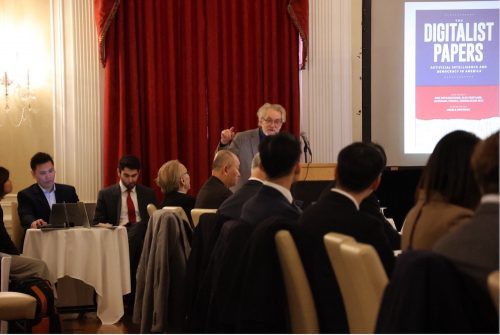There is widespread agreement that responsible artificial intelligence requires principles such as fairness, transparency, privacy, human safety, and explainability. Nearly all ethicists and tech policy advocates stress these factors and push for algorithms that are fair, transparent, safe, and understandable.
But it is not always clear how to operationalize these broad principles or how to handle situations where there are conflicts between competing goals. It is not easy to move from the abstract to the concrete in developing algorithms and sometimes a focus on one goal comes at the detriment of alternative objectives.
In this paper, I discuss ways to operationalize responsible AI in the federal government. I argue there are six steps to responsible implementation:
- Having concrete codes of conduct
- Appropriate operational tools for promoting major ethical principles and fighting bias
- Developing clear evaluation benchmarks and metrics
- Relying upon technical standards to help with common problems
- Experimenting via pilot projects and organizational sandboxes
- Having a mix of technical nontechnical skills in the workforce
This report was originally posted at the Brookings Institute.
The Boston Global Forum (BGF), in collaboration with the United Nations Centennial Initiative, released a major work entitled Remaking the World – Toward an Age of Global Enlightenment. More than twenty distinguished leaders, scholars, analysts, and thinkers put forth unprecedented approaches to the challenges before us. These include President of the European Commission Ursula von der Leyen, Governor Michael Dukakis, Father of Internet Vint Cerf, Former Secretary of Defense Ash Carter, Harvard University Professors Joseph Nye and Thomas Patterson, MIT Professors Nazli Choucri and Alex ‘Sandy’ Pentland, and Vice President of European Parliament Eva Kaili. The BGF introduced core concepts shaping pathbreaking international initiatives, notably, the Social Contract for the AI Age, an AI International Accord, the Global Alliance for Digital Governance, the AI World Society (AIWS) Ecosystem, and AIWS City.











